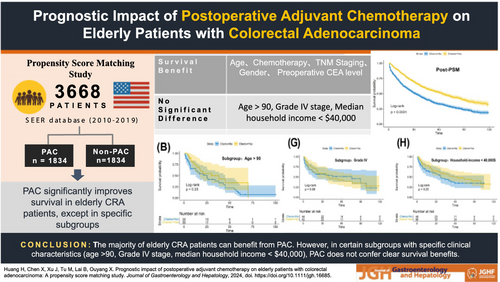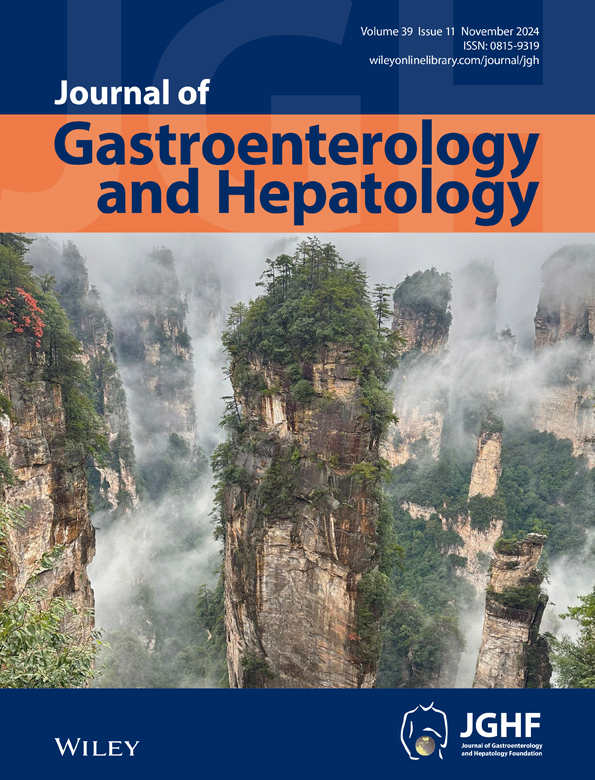Prognostic impact of postoperative adjuvant chemotherapy on elderly patients with colorectal adenocarcinoma: A propensity score matching study
Declaration of conflict of interest: The authors declare that the research was conducted in the absence of any commercial or financial relationships that could be construed as a potential conflict of interest.
Author contribution: HH: Writing—original draft, conceptualization. XC: Writing—original draft, methodology, validation. JX: Writing—original draft, methodology, visualization, software. MT: Writing—original draft, data curation. BL: Writing—review & editing, supervision. XN: Writing—review & editing, validation, investigation.
Ethical approval: Because the data from SEER are publicly available and deidentified, this study was exempt from local institutional review board review.
Financial support: The study was supported by the National Natural Science Foundation of China (No. 82060279).
Abstract
Background and Aim
Currently, the primary treatment modality for patients with colorectal adenocarcinoma (CRA) is radical surgery combined with postoperative adjuvant chemotherapy (PAC). However, many elderly patients decline PAC due to concerns about their underlying physiological condition, and the impact of PAC on the prognosis of elderly patients remains uncertain.
Methods
We extracted data from the SEER database for CRA patients aged 75 and above between 2010 and 2019. Utilizing propensity score matching (PSM), we stratified the patients into a PAC group and a non-PAC group, enabling us to compare the differences in Kaplan–Meier survival curves between these two groups. Furthermore, through univariate and multivariate Cox regression analyses, we identified the clinical factors that influence the survival of elderly CRA patients and compared the prognostic disparities between the two patient groups within specific subgroups of these clinical factors.
Results
Following PSM, a total of 3668 patients were included and divided into the PAC group and the non-PAC group, with no statistically significant differences observed in crucial clinical characteristics between the two groups. Kaplan–Meier analysis revealed a significantly better prognosis for patients in the PAC group compared with those in the non-PAC group. In addition, age, chemotherapy, TNM staging, gender, and preoperative CEA levels were all identified as important factors affecting patient prognosis. Moreover, PAC provided survival benefits across the majority of levels within the aforementioned subgroups. However, in specific subgroups (age > 90, Grade IV stage, median household income < $40 000), PAC did not confer any survival benefits.
Conclusion
PAC can significantly improve the prognosis of elderly CRA patients. Nonetheless, in certain population subsets characterized by specific clinical features, PAC does not provide any survival benefits.
Graphical Abstract
Open Research
Data availability statement
The data for this study are publicly available from the Surveillance, Epidemiology, and End Results database (https://seer.cancer.gov/).





